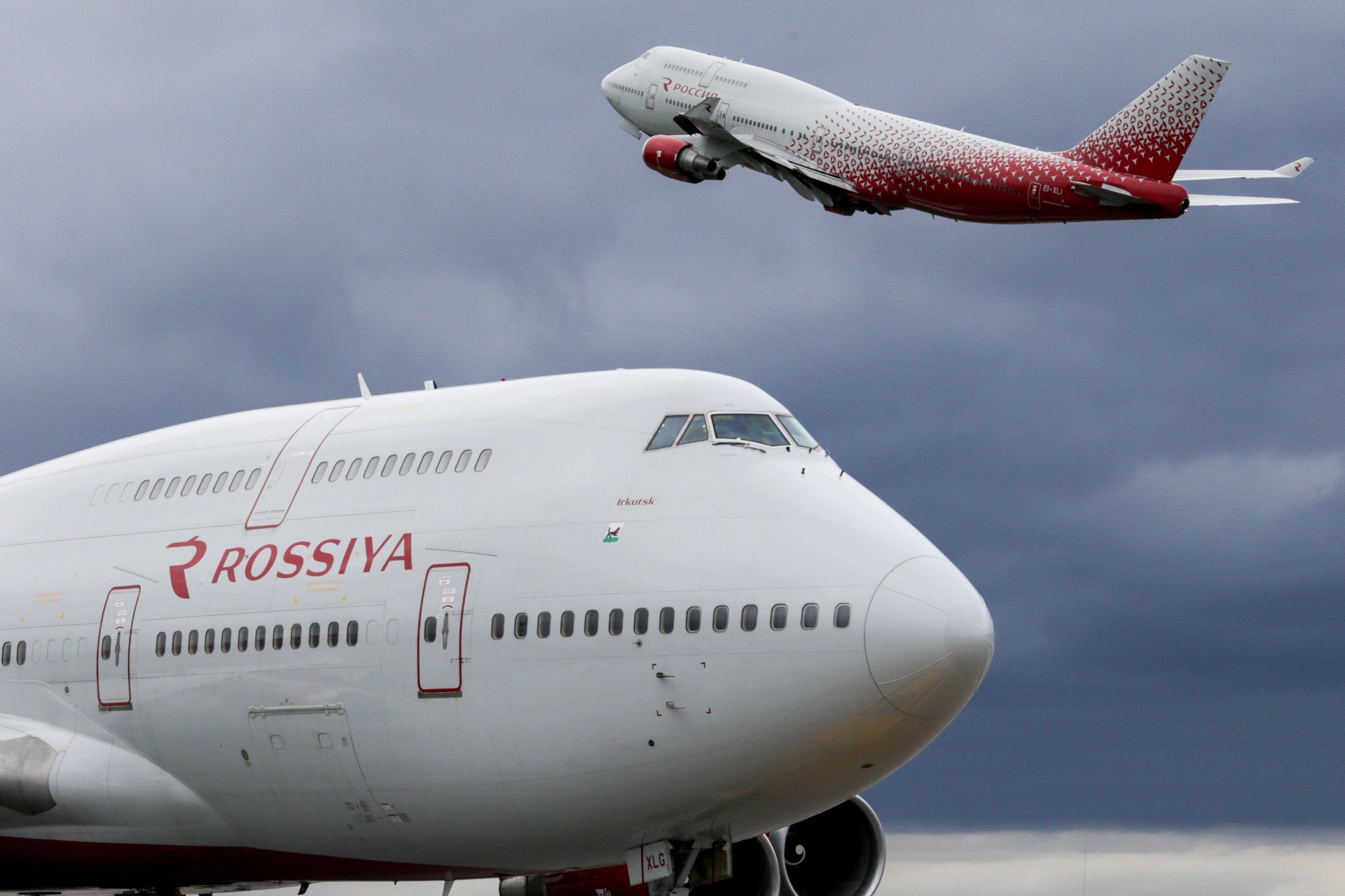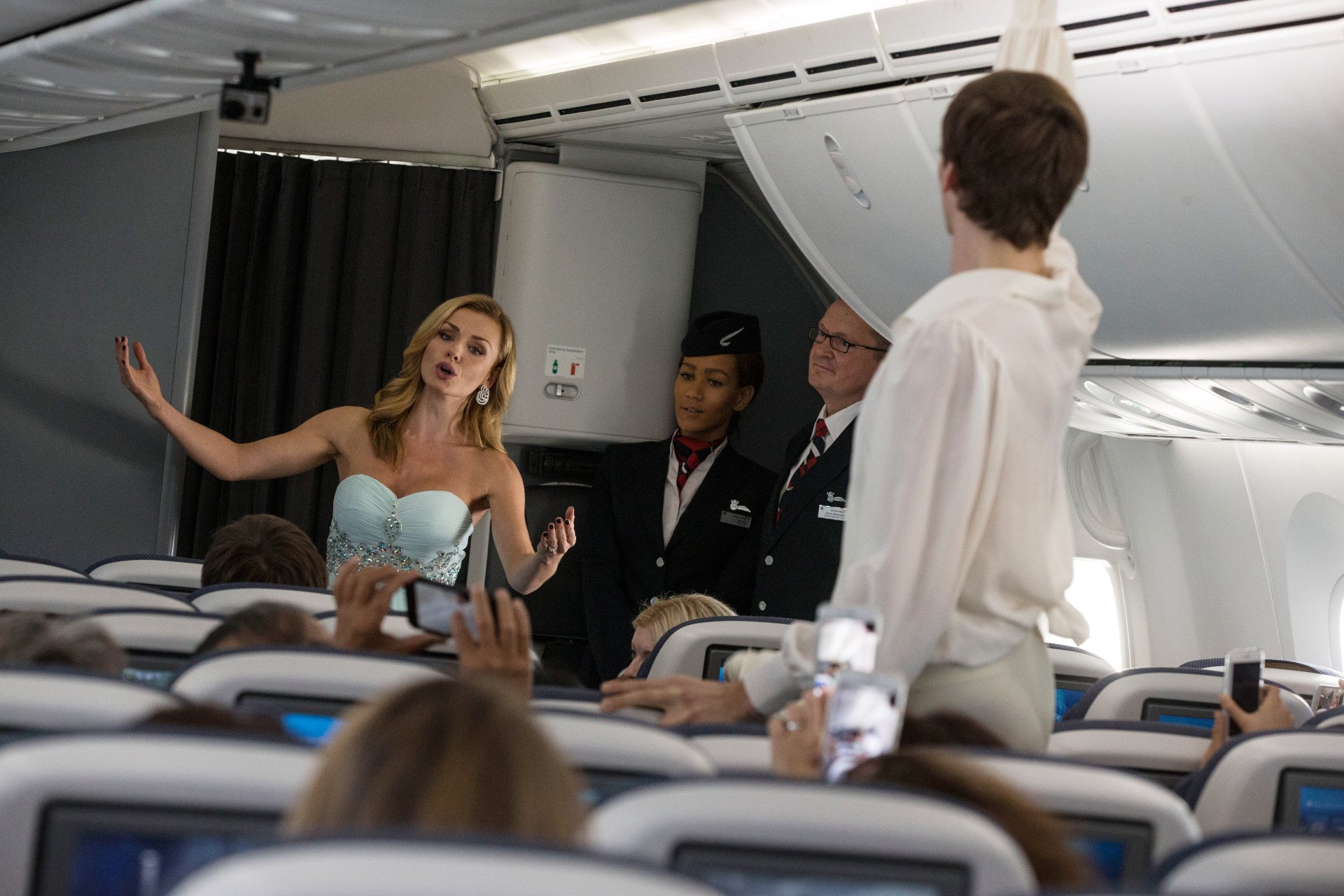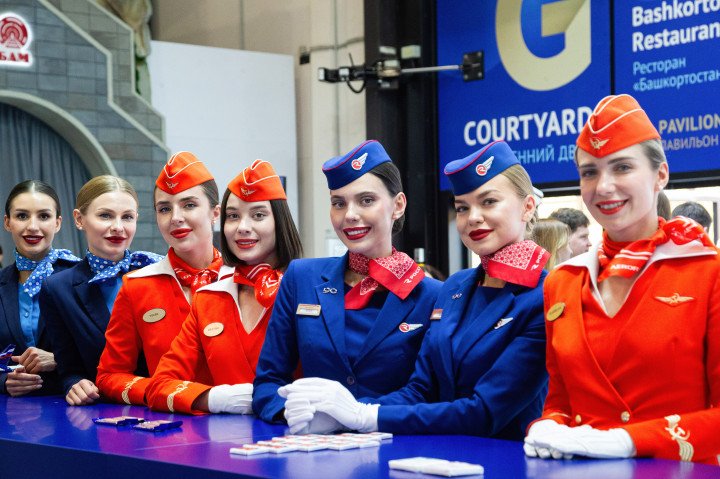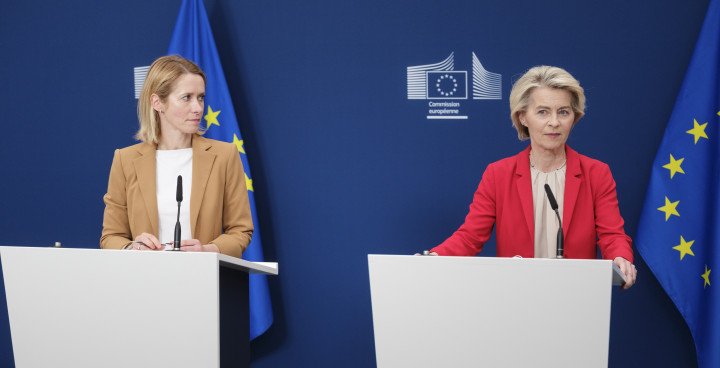- Category
- World
How Russia Secretly Imported €1 Billion in Jet Parts, Investigation

Russia has imported nearly €1 billion ($1.2 billion) in Airbus and Boeing aircraft spare parts, exposing gaps in sweeping Western sanctions aimed at grounding Moscow’s aviation sector.
More than 4,000 shipments of parts ranging from engines and radar systems to seat cushions and cabin gear were delivered to Russia between February 2022 and September 2024, an investigation by a Finnish media outlet Yle revealed. More than 360 companies across the globe played a role in supplying the shipments, with the bulk of exports originating from the United Arab Emirates (UAE), Gabon, China, and Türkiye. While some firms sent only a handful of deliveries, others dispatched hundreds, said Yle.
Both Airbus and Boeing say they ceased support for Russia and comply fully with export laws. “There is no legal method for aircraft, parts, or documentation to be exported into Russia,” Airbus stated. Boeing echoed that it had “suspended providing parts, maintenance, and technical support” in early 2022.
How Russia kept its sanctioned jets flying
The US and EU banned aircraft parts exports to Russia in an effort to ground its civilian fleet and economically isolate the Kremlin. At the time of its invasion of Ukraine, Russia operated hundreds of leased Western jets, many of which were seized after their lessors canceled contracts.
In 2022, the UK, EU, Canada and the US closed airspace to all Russian commercial and private aircraft. In mid-2022, Reuters reported that Russian airlines like Aeroflot had begun stripping aircraft such as Airbus A320s, A350s, Boeing 737s, and Sukhoi Superjet 100s to use parts for maintaining other planes, with approximately 15 percent of Aeroflot’s fleet grounded as a result.

The sanctions aimed to cripple Russia’s aviation sector but Yle’s report reveals how Moscow bypassed restrictions by sourcing components through non-sanctioning states.
Before the sanctions, Russian airlines operated hundreds of aircraft leased from Western companies. When the sanctions took hold, leasing firms swiftly canceled the contracts. But the planes never came back. Instead, Russian carriers retained the jets, effectively expropriating them and re-registering the aircraft under Russian jurisdiction.
Russia retained around 500 aircraft worth up to €10 billion ($11.7 billion), The Guardian reported. Many of these aircraft now depend on these diverted parts to remain operational.
Russian aviation poses safety and security risks
The findings exposed by Yle undermine the impact of Western sanctions. While the parts are mostly for civilian use, others, like radars and electronics, are dual-use, meaning they could support Russia’s military aviation sector as well.
Beyond that, Russian airlines—some of them state-owned and under Western sanctions—continue flying with the help of parts likely sourced through legal grey zones.

Continued reliance on back-channel supplies and cannibalized parts raises serious aviation safety risks, warns Professor Stephen Wright of Technological University Dublin. Safety incidents involving Russian aircraft more than doubled from 37 in 2022 to 81 in 2023, coinciding with sanctions, parts shortages, smuggling, and the use of cannibalized components.
Russia, says Wright, lacks both the industrial capacity and political will to restore its domestic aircraft manufacturing to match international regulations.
UAE emerges as key hub in Russia’s sanctions evasion network
After sanctions were imposed following Russia’s full-scale invasion of Ukraine, nearly one-third of the aircraft parts Russia received came from the (UAE). While scrutiny may intensify on third-country enablers, nations like the UAE have not imposed sanctions on Russia and are under no legal obligation to halt such exports.
Western governments may respond by blacklisting intermediaries and tightening secondary sanctions to crack down on unauthorized exports of aircraft parts to Russia. Airbus stated to Yle that it “complies with all relevant laws and sanctions regarding Russia,” noting that “Russia falls under US export control regulations banning the sale of aircraft, spare parts and documentation.”

The company also pointed out that “the EU has imposed its own sanctions preventing the sale of aircraft, spare parts, tech data, provision of services or any support associated with any Russian carrier, including any non-Russian carriers with aircraft destined to be used in Russia.”
While Airbus says it “can keep track of genuine parts and documentation and can specify end user commitments,” it admits “there is no method for OEMs to police non-genuine parts, documentation and services.” Boeing similarly confirmed that “in early 2022, Boeing suspended providing parts, maintenance, and technical support for customers and maintenance service providers in Russia,” and added “We continue to adhere to US sanctions and global laws and regulations.”
Neither company responded to Yle’s follow-up questions.
Russia’s aviation sector is far from grounded. Instead, it’s adapting and surviving through a global network of intermediaries. As Professor Wright puts it, “Russia can keep flying, but not safely and not forever.” Whether enforcement catches up may determine how long that runway lasts.

-554f0711f15a880af68b2550a739eee4.jpg)

-605be766de04ba3d21b67fb76a76786a.jpg)
-2c683d1619a06f3b17d6ca7dd11ad5a1.jpg)


-661026077d315e894438b00c805411f4.jpg)
-46f6afa2f66d31ff3df8ea1a8f5524ec.jpg)